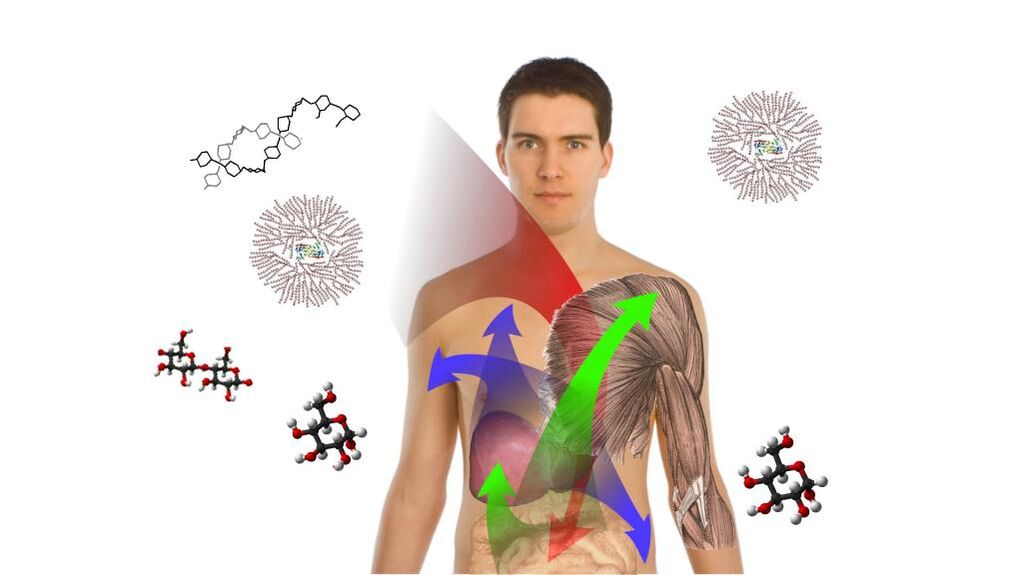
Psoriasis is a chronic skin disease of the skin. Psoriasis is expressed in the form of red papules (swollen spots). In recent years, the disease has become more and more common in people between 20 and 30 years old. Unfortunately, the level of modern medicine cannot prevent the spread of diseases. Why does psoriasis occur and how should it be treated? Let's take a closer look.
Cause of disease
There are many different types of assumptions about the causes of psoriasis. However, this problem has not been fully studied in medicine. There are various theories, but the source of psoriasis is unclear.
There are two main types of psoriasis: due to genetic factors (changes in the immune system) and the so-called "delayed type" (affected area-nails and joints) after 40 years.
Why does psoriasis occur?
At the level of modern medicine, psoriasis is considered to be the failure of the body's overall system, rather than a separate disease. In addition to the typical rash, the patient also suffers from dysfunction of the endocrine system, including the nervous system and immune system.
There is no single answer to the cause of psoriasis. There are several typical theories for psoriasis. Let us introduce each of them in detail.
Immunity Theory
The theory of immunity has been recognized by many doctors all over the world. According to this theory, psoriasis occurs due to dysfunction of the human immune system. What causes psoriasis in the body? The typical pimples (bright red spots) are the result of an autoimmune attack. The immune system treats skin cells as foreign bodies, so it gradually rejects them. In their place, characteristic papules appear.
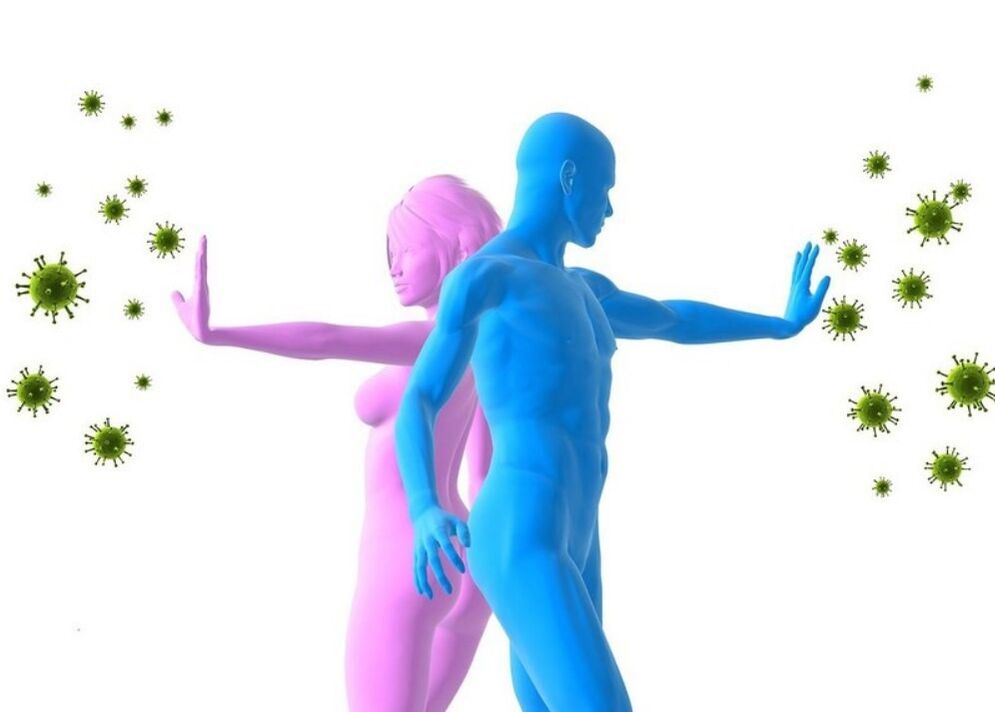
Long ago, doctors determined that psoriasis can develop in the context of persistent infectious diseases (sinusitis, tonsillitis). Because the immune system functions abnormally and causes psoriasis, this theory has the right to exist. When studying papule scales, scientists discovered that the antigen complexes they contain are not unique to healthy cells. There are antibodies against these complexes in the blood, so rejection occurs-the formation of papules.
Low immunity is fertile ground for the development of psoriasis.
At the genetic level
Unfortunately, psoriasis can be inherited. However, it should be remembered that it is not the disease that is transmitted at the genetic level, but the susceptibility. Direct statistics confirm the fact that 60% of psoriasis patients’ blood relatives have the same diagnosis.

If one of the parents has this disease, then the probability of psoriasis in the child is 25%. If both parents have psoriasis, the risk of the disease will rise to 75%.
Scientists have shown that the disease is directly related to the chromosomal region, which determines the level of inflammation in the skin. However, genetic susceptibility cannot be considered the main cause of psoriasis.
Some people are resistant to psoriasis. Among them are the Indians who live in the Eskimos of the Andes. These people have genetic characteristics, so their representatives have never suffered from psoriasis.
Endocrinology
What causes psoriasis in adults? According to endocrine theory, psoriasis can be caused by hormonal dysfunction. The doctor put forward this theory after carefully analyzing the course of the disease itself. It is believed that the overproduction of skin cells is the result of the body's regulatory dysfunction. Therefore, due to the dysfunction of the endocrine system.
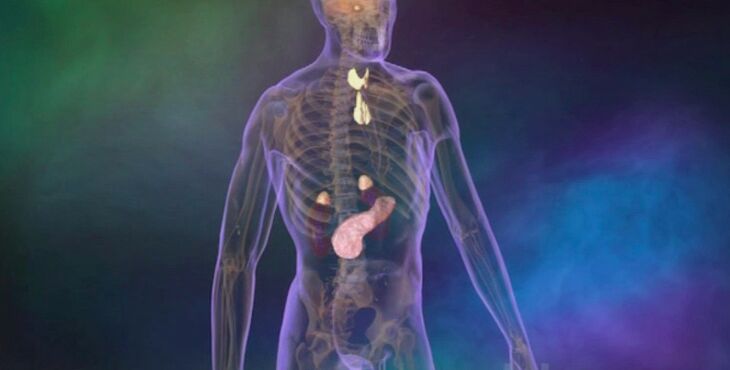
During the surge of female hormones (ovulation and menstruation) and during pregnancy, psoriasis is activated. However, until now, scientists have not discovered the hormones that affect the appearance of psoriasis. Therefore, it cannot be said that the endocrine theory is fundamental.
Neurogenic theory
Neurogenic theory is considered to be the latest one. According to her, psoriasis comes from "nervous" and psychological factors should be attributed to psoriasis. Psoriasis can cause neurosis. Due to neurosis, the blood vessels narrow and the blood supply to the skin is weakened, thus forming papules.
Therefore, when asked about the cause of psoriasis, everyone around should immediately answer that it is caused by nerves.
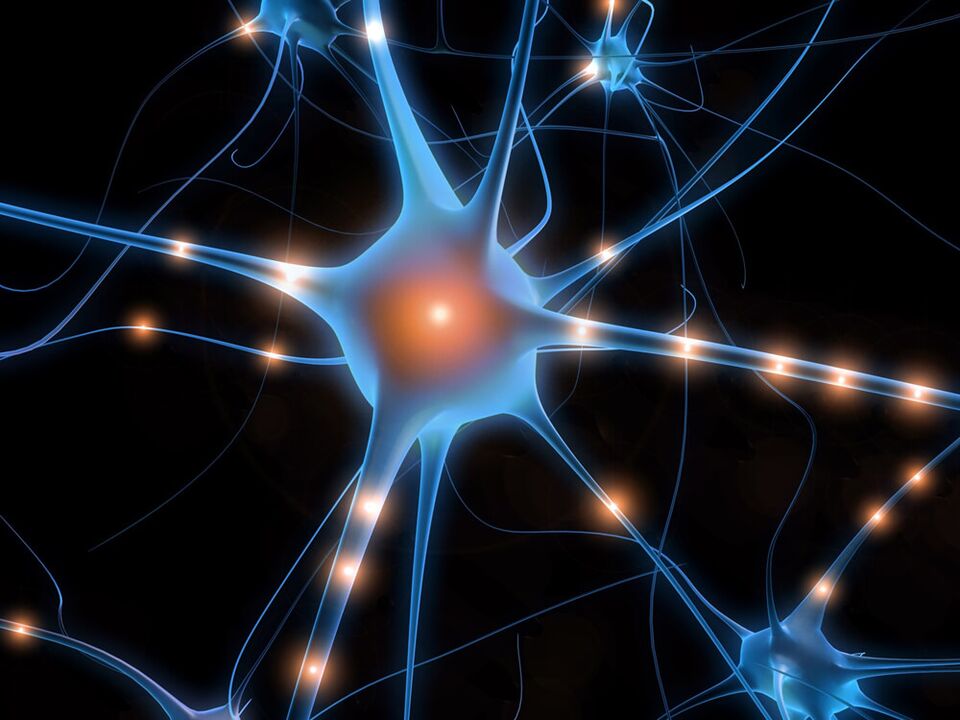
According to many studies, it is obvious that stress, deep inner experience, and nerve concussion are the stimulating factors for the appearance of rash.
Virus Theory
There is also a virus theory. Within its framework, doctors believe that psoriasis may be the result of infection. Indeed, during infectious diseases, papules appear more frequently and lymph nodes increase. However, some doctors attribute this change to a weakening of the overall immune system.
In the entire history of the disease, no specific pathogen has been found that can cause the appearance and development of psoriasis.
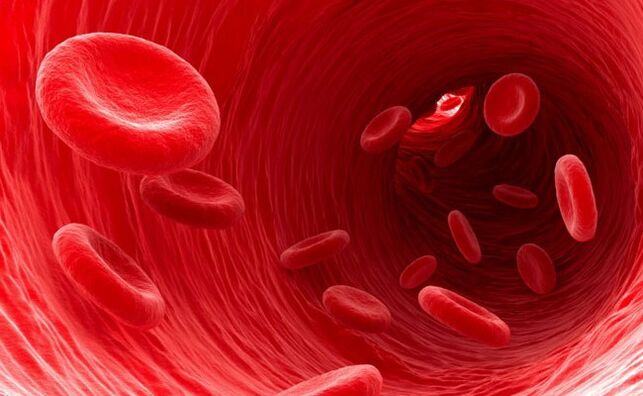
Psoriasis is a disease that cannot be spread through contact. Even if blood is transfused from an infected person to a patient, no cases of infection of this disease have been recorded.
Abnormal metabolic process
During psoriasis, many patients have low body temperature, high cholesterol, and impaired metabolism of vitamins, carbohydrates and trace elements. All these indicate signs of metabolic disorders in the body.
As a result of repeated studies on patients with psoriasis, the doctor concluded that one of the reasons for the appearance of the disease lies in the violation of the metabolic process.
Factors that cause psoriasis
In order to accurately understand the causes of psoriasis, it is necessary to outline the various factors that may cause psoriasis. The following are the most powerful factors:
- Stress, negative emotions, mental trauma, emotional and physical fatigue are fertile ground for the recurrence of psoriasis;
- Infectious diseases, vaccination;
- Changes in hormone levels in the body (adolescence, pregnancy, lactation);
- Personal injury: scratches, burns, bites, frostbite;
- Taking certain drugs: antibiotics, vitamin complexes, immunostimulants;
- Improper nutrition (the diet is rich in sweetness, fat, fried and alcohol);
- When the climate changes (unfavorable conditions-humid climate, sudden temperature changes);
- There are other skin diseases: dermatitis, fungus.
The cause of psoriasis can be hidden in one of the factors. Therefore, patients with this disease should minimize the performance of the above-mentioned external factors that affect recurrence.
The main symptoms
Psoriasis can manifest at any age, including children. Moreover, the earlier the disease appears, the more accurately it will eventually enter the advanced stage.
How psoriasis appeared, the following photo proves: the formation of a rash, the formation of papules on the skin surface, the formation of papules (red spots, white scales).
The first signs that indicate psoriasis are:
- Cracks and impetigo on the skin;
- The nail plate falls off;
- Blisters appear on the palms and feet;
- Severe skin peeling
- Itching in the area of the pimples.
As the disease progresses, the number of pimples increases to 10 cm, the skin in the damaged area is sensitive, but the hairline still exists.
There are many manifestations of psoriasis:
- Simple-spread on the skin of the legs (on the surface of the extensor muscles of the knee), the papules are covered by white scales;
- Seborrheic psoriasis usually occurs in people with seborrhea; the disease is characterized by the appearance of yellow papules, which stick to the sebum, are not suitable for inflammation, and are mainly distributed on the scalp, behind the ears and on the face.
- Arthropathy psoriasis-papules appear on the joints, feet and hands, therefore, the disease can interfere with their normal activities;
- Reversal-Papules are located in the natural folds of the body. This disease is usually adjacent to problems with the body's endocrine system;
- Lacrimal psoriasis may appear on the head, and this form of psoriasis may appear from this area-not yet certain;
- Nail psoriasis-this disease only manifests on the nail plate-they thicken and deform, and the nails affected by the disease look like bird's beaks;
- Psoriasis Psoriasis is an extremely serious form of psoriasis, which is characterized by plaque fusion. If the patient’s condition is ignored, the plaque can cover the entire body. Accompanied by: swelling, peeling, redness, severe itching and extreme discomfort.
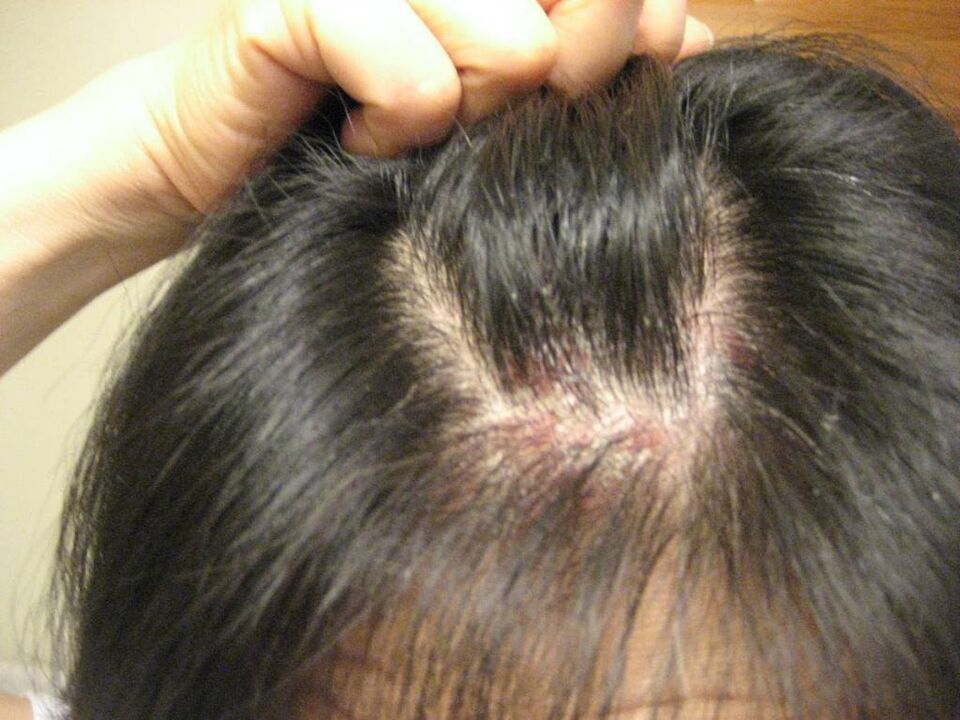
What causes psoriasis on the hands? The reason is purely personal.
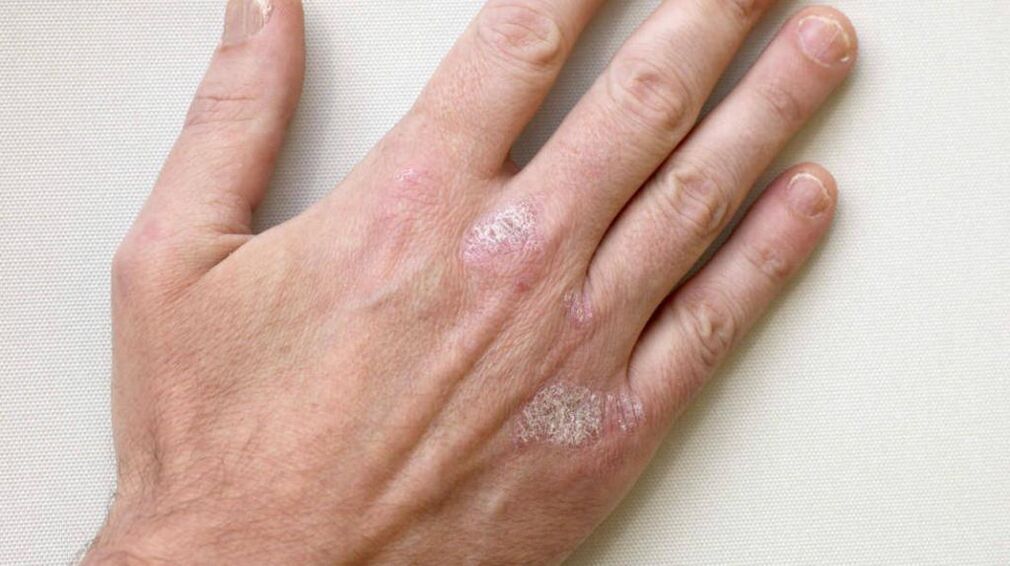
There are many factors and theories that have not been fully proven. However, many doctors agree that the cause of psoriasis can be hidden in diseases of the immune, neurological and endocrine systems.
Stages of psoriasis
Psoriasis is divided into three stages:
- Progressive stage-it is characterized by a bright red rash, the number may increase. If you do not receive treatment in time, the disease will progress.
- Quiescent phase-no new pimples appear, and the growth of pimples on the skin has stopped.
- Degenerative phase-papules are significantly resolved, their size decreases, peeling decreases or stops completely.
In order to correctly diagnose and determine the stage of psoriasis, professional consultation from a dermatologist is required. With the help of visual inspection, laboratory research and microscopic examination, he will be able to make an accurate diagnosis and determine the current stage.
Psoriasis appears: what to do?
Psoriasis is a complex disease, and its treatment takes a long time. Even if the disease resolves for a long time, it often recurs. The main goal of treatment is to eliminate the rash. Therefore, it is necessary to treat patients individually according to the development of the disease, the accompanying symptoms and recurrence.
External and internal therapies differ in the main treatment methods.
External treatment of psoriasis:
- Ointments on solid, lanolin and fat bases;
- Pine Tar
- Naphthalene;
- Mustard ointment;
- Hormonal ointment (usually prescribed by a doctor in the advanced stage of the disease).
Internal remedial measures:
- multi-vitamins
- sedative
- Tranquilizers, antipsychotics;
- Hypnosis
- Antidepressants
- Antibacterial and anti-inflammatory drugs;
- Metabolic stimulants
- Immune drugs.
In addition to medication, patients also need to remove sweet, fried, spicy, and smoky foods from their diet. Don't eat ice cream, coffee, carbonated drinks, mushrooms or preserved foods.
Psoriasis is a chronic disease and cannot be spread through contact. The causes and factors of psoriasis are very different, so almost everyone may be at risk. This is why one must pay attention to one's health and strengthen the immune system. Avoid stressful and stressful situations! First think about it and imagine what the pressure will look like in the future. health!























